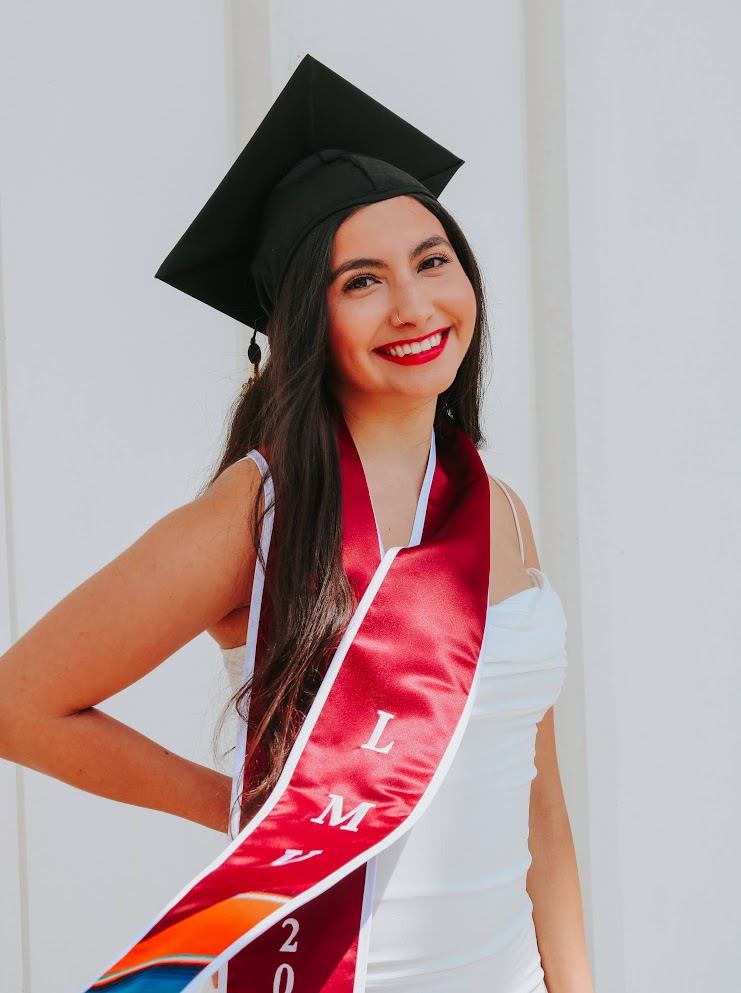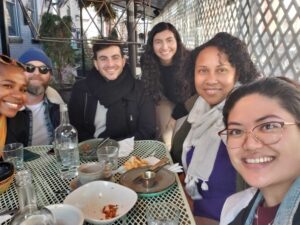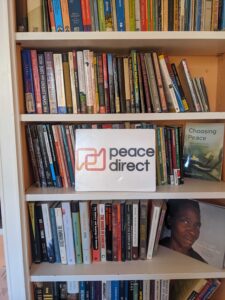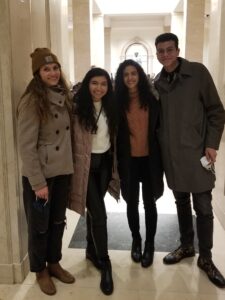From Direct Service to Systems Change
Elsie Mares February 28, 2022
Being born to a family that valued community and public service meant that from a young age I was involved with efforts and initiatives to serve and improve my small, agricultural Latine community in Central California. My role in these collective initiatives to promote equity, advancement, safety, and opportunity started off small. I got to lend a hand in small scale projects such as tending to community gardens, stocking local food pantries, and participating in fundraisers that sought to support immigrant households. The importance of playing a role to alleviate the impact of poverty was not something I had to learn, but something I just grew up knowing from my parents’ experience that socio-economic status was directly constrained by factors such as language barriers, lack of access to education, citizenship status, and more.

Naturally, my capacity in these community initiatives progressed from that of a little kid who came by with her mom to lend a tiny hand- to a young community member who was committed to being engaged and active. As early as middle school, I served as a translator at local food pantries and community wellness programs, making the information available for Spanish-speaking attendees. In high school, I expanded this commitment to wellness of immigrant households into a student club that also provided tutoring and conducted clothing drives for school children in immigrant households. With the support of mentors, we also built up the confidence to begin advocating at city council meetings for the interests of agricultural workers and resources for migrant students at our underfunded public schools.
In college, I balanced my existing involvement with immigration justice and service projects, with new opportunities to serve Los Angeles migrant communities as well. From volunteering as a case manager at a migrant domestic violence shelter, providing interpretation services at community events, leading service trips to the border, organizing mutual aid projects for immigrant communities, supporting advocacy campaigns, and working to distribute relief to immigrant households in need and more, I was supplementing and informing my formal studies with learning experiences outside of the classroom.

These efforts to serve immigrant communities and improve conditions for low-income migrant folks felt meaningful, but they also felt like only part of the bigger picture. As fulfilling as direct action and service are, these experiences working alongside and on behalf of immigrant communities culminated into an understanding that immigration justice does not begin and end at our borders, but instead demands that those committed to addressing migration and refugee crises must also examine and address the root causes of displacement and all the complicated and intertwined factors that underlie irregular migration flows at large. My long-term involvement in direct and grassroots local action was a journey toward the slow but sure discovery that I wanted to affect change on a systematic scale through policy. Beyond direct service or even domestic policy, I realized that voices like mine and those around me would continue to be lacking in the architecture of international affairs and foreign policy until we changed that one person at a time.

But after this realization, I thought… Where do I start? My will to break into the policy sphere was shaped by uncertainty. Frankly, thinking about pursuing a career in policy-making felt like only a skip away from pursuing a career in Hollywood. For children whose parents overcame mountains of adversity; from crossing borders and escaping poverty, dreaming of anything other than a structured path to a practical and secure career (whatever that means)- feels like disobeying an unwritten 11th commandment. It was during this time, ahead of the 2020 election and in the midst of a long overdue mass reckoning with the violence of white supremacy, that I first heard Rep. Ayana Pressley’s belief that “the people closest to the pain, should be the closest to the power, driving & informing the policymaking.” Hearing this framing provided the language for a sentiment that had been building within me for years through getting to know the names, faces, and stories of so many people whose lives were directly shaped by the impact of violent conflict, systemic poverty, and economic inequity, and other challenges related to policymaking processes that were entirely removed from the people they impacted most.

Mares at the National Gallery of Art with Scoville Fellows Tessa Snyder, Asma Rassem, and Nathan Ojo.
Ultimately, this message resonated with me so much that it inspired the confidence to apply for the Herbert Scoville Jr. Peace Fellowship. This opportunity to be propelled into the peace and security space has been the prime gateway into a career that seeks to make human security central to international approaches to population movements. With just half my fellowship with Peace Direct under my belt, I have gained direct exposure to what it looks like to do advocacy work that is shaped by the leadership, voices, and priorities of those most impacted by global conflicts and challenges.
As a Scoville Fellow, I have been empowered to lead a project exploring how peacebuilding might be an under-recognized tool to prevent, mitigate, and intervene in the conditions that underlie forced migration and displacement. I am privileged to be able to bring in perspective that seeks to address the root causes of global migratory flows not for the sake of preventing migration, but for the sake of injecting compassion, care, and humanity back into the policymaking and conflict management that has direct implications for people across the world and the incredibly difficult decisions to remain in or migrate from a given context.
Beyond the knowledge, learning, and exposure I have gained throughout this fellowship, I have built relationships and a network of advocates, researchers, scholars, and others who are fueled by their passion for the promotion of peace and human security. I am reminded that while the challenges shaping the world may sometimes seem larger than life, just like small-scale direct action, affecting larger change is possible through persistence, passion, and collective action.
Elsie Mares is a Fall 2021 Scoville Fellow with Peace Direct.
